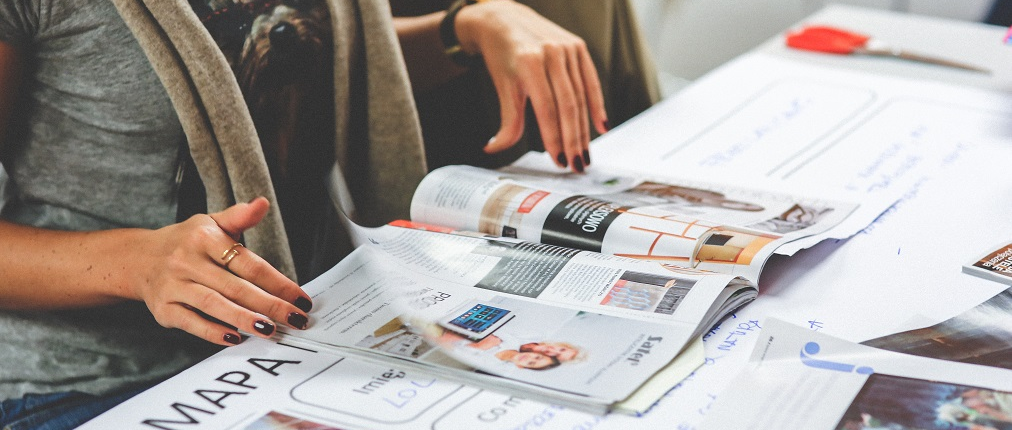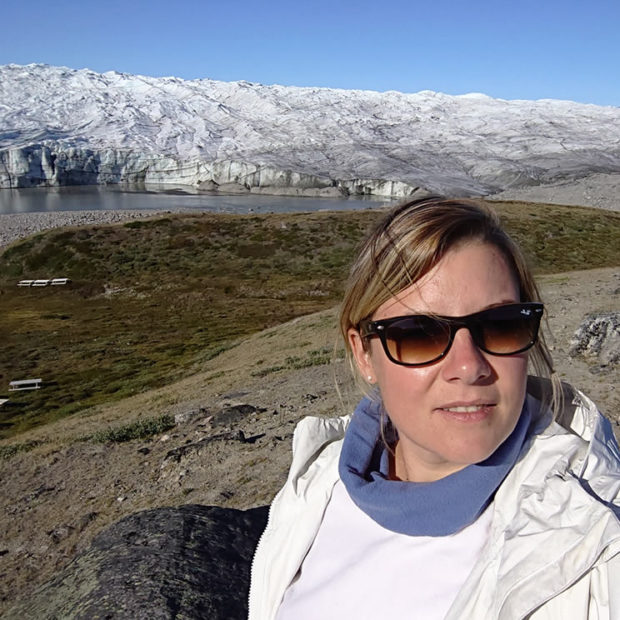Hartley News Online Your alumni and supporter magazine
In 2016, Southampton alumna Ella Dove (BA English and French, 2013) was out running with her sister when she tripped and fell over. She was rushed to hospital, and spent four days in intensive care, undergoing three operations. But tragically, the blood had been cut off from her lower leg – and doctors felt the only option was to amputate below the knee.
Despite this trauma, Ella is now thriving as a successful commissioning editor for Good Housekeeping, Red, and Prima magazines, an internationally published author, and a leading voice on body positivity and inclusion. Ella talks to Hartley News Online about her injury, her time as a Southampton student, and how they have both played a role in where she is today.
You had your injury in 2016. Can you tell us about what happened?
I was out running with my sister, who was training for a half marathon, and we were five minutes from home when I tripped over. I knew it was bad because my leg was at a funny angle and I couldn’t stand up. We didn’t have a phone with us; a man came by and said he called 999, but then he left. My sister didn’t want to leave me on my own. Thankfully, though, a woman passed by, called an ambulance, and stayed with us until it arrived.
I was taken to hospital, and over the next four days, I had various operations to help save my leg. I had dislocated and fractured my knee, and developed compartmental syndrome – which is where the blood flow had been cut off. In the end, the doctors said the only thing they could do was amputate my leg below the knee.
How did you cope with such a life-changing situation?
It sounds a cliché, but it really was a rollercoaster, and it wasn’t until a bit later that it started to sink in – because at the beginning, I was very focused on the physical recovery, completing the rehab and getting used to wearing a prosthetic. There were highs and lows. There were some days where I could cope with it, and then there were days when I realised I couldn’t do something simple – and that was very tough. There were times when I would have flashbacks or dream about the accident, and it’s only now, when I look back, that I can say that I experienced PTSD. I spent some time talking with a therapist, and I generally have a positive mindset – which helped a lot.
How have you used what happened to inspire you and influence your career?
I wrote a novel, called Five Steps to Happy, about a girl who has to have her leg amputated after an accident, and her journey following the injury. It is a fictionalised version of what happened to me, somewhat different to my story – I didn’t want it to be a memoir. It was cathartic in a way, to be able to write about my accident, because I got the opportunity to delve into the emotions on the page.
I’ve also started to work with Speakers Collective, which aims to challenge stigma, facilitate important conversations, and promote learning on a variety of social issues through events. I speak about disability and inclusion, especially in the workplace, as well as my writing career. And I am also starting to be more active on Instagram and talk about body positivity. I have a desire to help people and empower them to be more open. I want to help normalise disability, help people realise they are not alone, and that they can achieve what they want despite what they may have to overcome.
How did your time at the University help you in what you are doing now?
I studied both French and English at Southampton, and my dissertation was in creative writing – which I have used throughout my career as a journalist, but also when I was writing my book. My dissertation supervisor, Ms Rebecca Smith, was incredibly supportive when I was at the University, and I name her in my book’s acknowledgements. She also came to my book launch, which was wonderful.
Why did you choose to come to Southampton?
I visited the University on one of the open days, and really loved it. I enjoyed being on a campus, but also in the city as well. Some of my lectures were at Avenue Campus, which was a really great place to study – its own little community. The University has a really good reputation for both English and languages, and I really liked the sports facilities.
What special memories do you have from your time at Southampton?
There are so many memories – probably too many to count. Graduation was a really special time – I loved donning the cap and gown, and celebrating with all of my class. I was involved in a lot of societies, which was so fun and rewarding: I was president of the French society and organised a lot of trips; I was involved in Surge Radio and wrote for Soton Tab; I was part of the theatre group and wrote and directed some showcase performances; and I was a student ambassador and involved in open days and other outreach activities.
I also took part in a residential scheme, in which secondary school pupils would come and stay at the University in the summer to see what it was like. It was a great bonding experience for me and the other ambassadors, and we had the opportunity to share the joy of university with pupils, and get them excited about another chapter of their lives.
What ambitions have you got for the future?
I want to continue to promote inclusion through my various platforms and activities. I’m working with the Limbless Association as a trustee and their Young Ambassador Lead. We’ve recorded a new podcast called AmpLAfy to raise awareness of the issues faced by people living with limb loss; we’ve just finished the first series, and now we’re going to do a second. I am also doing a TEDx talk at the end of the year with Cumbernauld Women, which is very exciting. I just want to spread a positive message that no matter what your circumstances are, you can still achieve your goals.
What advice would you have to anyone else who may be facing or trying to overcome a trauma?
When I was in hospital, my friend sent me a picture with a quote on it by A A Milne: “You’re braver than you believe, stronger than you seem, and smarter than you think.” I had it with me all through my recovery, and it has stuck with me ever since. My advice to anyone would be that no matter what is happening, you are still going to be able to achieve many things in life – so keep going.
You can find Ella on Instagram or visit her website.



